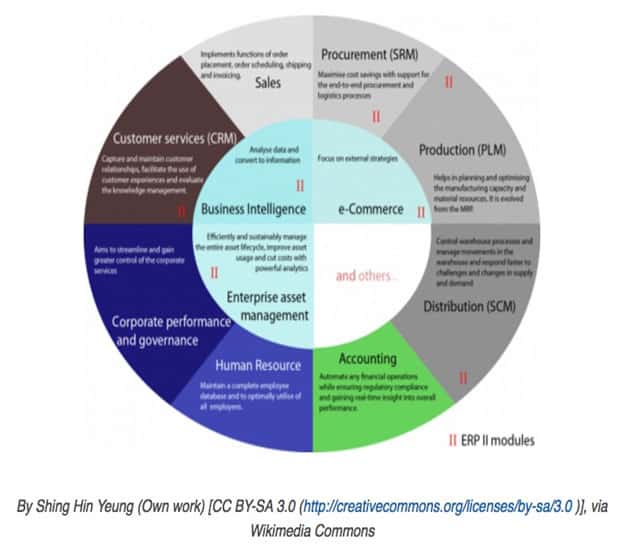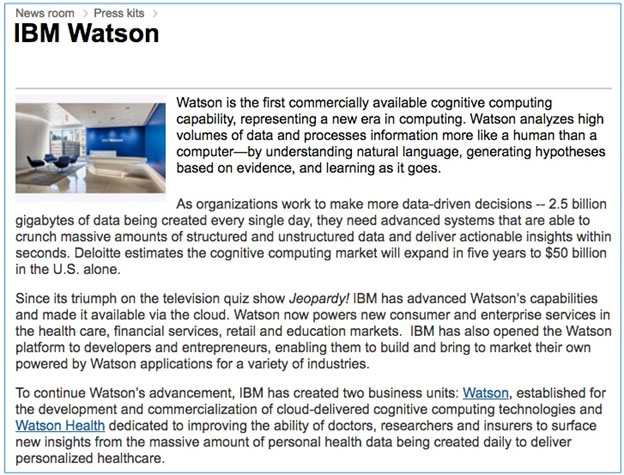ERP and Global Inventory Management: How innovations are helping businesses achieve better efficiency

Global inventory management has become a trending topic in the business applications development space in the recent years. Due to the globalized nature of most businesses today, it has become necessary to address the need to service a wider customer base, which usually goes beyond borders.
From managing a small business to running a Fortune 500 organization’s global information network, inventory management software solutions have enabled businesses to manage, adjust and record their stock levels, as well as optimize the movement of inventory. Recent advances in technology have dramatically changed the way businesses sell to the end-customer – particularly through smarter decision-making in terms of pricing, inventory movement, fulfillment, and providing access across channels, among others.
Enterprise resource planning as a basic business necessity
Most big organizations turn to enterprise resource planning (ERP) solutions providers such as Corning Data to manage almost every aspect of the business, including operations, finance, HR, sales, as well as inventory. With the demands for more integrated ERP systems, businesses now feel the need to enhance the efficiency gains from ERP solutions.
A recent study shows that businesses that apply best practices in ERP utilization have reduced time-consuming tasks like documentation, testing, and training by around 70 percent — a statistic that shows the levels of importance that ERPs play.
ERP solutions also enable organizations to manage and analyze big data, which is likewise a trending topic in the business intelligence and enterprise sector. Access to big data and analytics can provide benefits like smarter insights into consumer behavior, better customer experience, event conversion tracking, stronger conversion levels and many more advantages.
Implementing these systems can also drive stronger customer satisfaction, especially if it means delivering better services and user experiences.
Getting to global scale with better inventory management
Whether it’s ASOS or a small street seller, inventory management enables organizations to scale on an unprecedented level. Inventory management has been growing since the early 2000s, but has only become a serious tool for businesses over the last five years. A good example of this is Square, an inventory management POS tool.
In 2009, Twitter founder Jack Dorsey introduced the platform as a new POS solution that focuses on mobile. Square provides a portable means for merchants to accept customer payments without having a traditional credit card terminal. For businesses, this opens up huge doors, as any average shop owner, sole trader or even a freelancer can now take payments and manage all of their inventory through their iPhone or iPad at a single glance.
The app’s founding actually comes with an interesting story. Reportedly, Square was conceptualized when a friend of Jack Dorsey’s was trying to make a sale on an art item, and the buyer was trying to pay using a credit card. His friend couldn’t make the transaction as he had no POS solution – hence, he missed out on a $2,000 deal. And so, the two worked on developing a POS with on-the-go capabilities and inventory management built-in, allowing sellers better insights into growing their sales.
Most e-commerce platforms such as Etsy, Groupon, and Amazon, have built-in inventory management systems. But with a growing need for more flexibility with solutions, a lot of the best resources today are focusing on mobility, with both online and offline capabilities.
For instance, Etsy sellers can upload their products and manage their stock easily using the website, and if needed, an on-the-go POS like Square, Vend, or iZettle.
As a more advanced solution, Vend provides better flexibility in its mobile-oriented inventory management solution, which is designed to support advanced transactions and interactions with customers. Whether it’s offline or online, Vend enables retailers to keep track of inventory, reduce transactional friction, and grow sales through both online and offline channels.
Vend has been successful with Etsy-style sellers as a solution for processing transactions and managing inventory, as more and more sellers begin to sell across both online and offline channels. This is a perfect example of how e-commerce solutions can enhance omni-channel capabilities, thanks to innovations in POS and inventory management.
Inventory management innovations directly benefit both consumers and businesses. It saves consumers time with communicating about delayed shipments or out-of-stock items. It saves businesses countless man-hours, compared to manually accomplishing supply chain analysis and optimization.
Analytics and automation
Technology also allows businesses to go deeper into their transactions. With each transaction, advanced inventory management analytics can measure stock levels and help accomplish any new supply purchases based on predicted sales. These systems and their features, despite being extremely detailed, add so much value. This is something I went into even further detail on, in my previous article on business and marketing automation.
Leading companies are leveraging their respective tools in order to establish themselves as market leaders in the global inventory management space. Organizations such as Microsoft, SAP, IBM, IBS, Logility and Oracle are big names working on new developments to help this process work more efficiently.
From this list, one company stands out, and that is IBM. The company has been developing its AI platform called “Watson”, which provides an API to enable developers to use its knowledge graph to develop new applications.
For example, Watson has already been used to map locations and recommend top destinations, specifically based on interests and past behaviors. It’s a very powerful tool, and IBM is keeping it at bay for the moment. It is likely that IBM will incorporate Watson into its existing enterprise-oriented solutions, providing intelligent capabilities that will help businesses automate.
Tools like Watson and companies similar to IBM will continue to develop higher level inventory management tools for large businesses, while iZettle, Square, and PayPal will continue to develop their SME range.
Success within retail
Retail is one sector that benefits greatly from ERP, automation, and inventory management. Whether you run a local shop or a global brand, such solutions provide relief from manual inventory management processes.
This includes activities like detailed sales reporting, refund management processes, and the like. Inventory management systems enable businesses to shave countless hours off everyday activities. Omni-channel solutions also provide a way for retailers to optimize the in-store experience alongside online efforts.
The takeaway
Modern POS and inventory management solutions enable businesses to make better-informed decisions, and will sometimes help automate the process, whether it’s a re-order or a halt in production, or a customer concern. These provide better visibility and transparency so that business managers don’t have to rely on guesswork.
The tools available to businesses have become stronger, smarter and faster, likewise providing a better user experience for the customer. For businesses, it’s a matter of deploying the right solution that fits the business.
Have you read?
These are United Kingdom’s top 20 best universities: ranking 2017
Follow the Logic: Why Boards Need Communications Expertise
Business Lessons From Howard Schultz: Make Them Look Good
Top Priorities for a CIO to Meet Digital Demands in B2B Commerce
Written by: Zac Johnson.
Add CEOWORLD magazine to your Google News feed.
Follow CEOWORLD magazine headlines on: Google News, LinkedIn, Twitter, and Facebook.
This report/news/ranking/statistics has been prepared only for general guidance on matters of interest and does not constitute professional advice. You should not act upon the information contained in this publication without obtaining specific professional advice. No representation or warranty (express or implied) is given as to the accuracy or completeness of the information contained in this publication, and, to the extent permitted by law, CEOWORLD magazine does not accept or assume any liability, responsibility or duty of care for any consequences of you or anyone else acting, or refraining to act, in reliance on the information contained in this publication or for any decision based on it.
Copyright 2024 The CEOWORLD magazine. All rights reserved. This material (and any extract from it) must not be copied, redistributed or placed on any website, without CEOWORLD magazine' prior written consent. For media queries, please contact: info@ceoworld.biz
SUBSCRIBE NEWSLETTER











